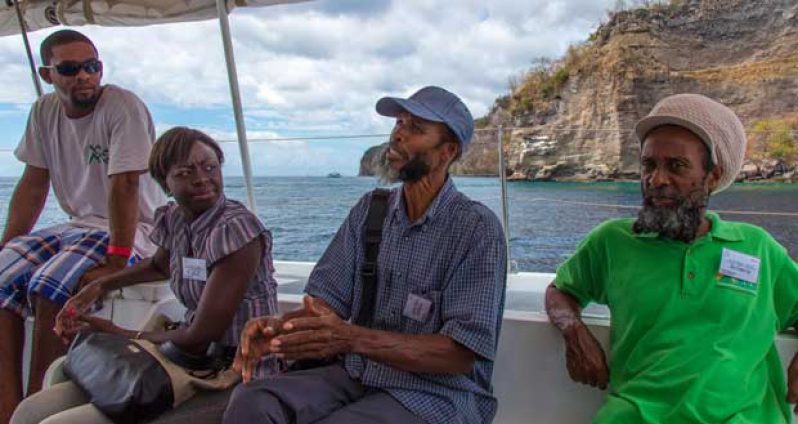THE Caribbean Community (CARICOM) and the German Government are supporting the efforts of eight CARICOM member states to adapt the management of their natural resources and economies to the ever-pressing and far-reaching socio-economic and environmental impacts of climate change. In a keen effort to strengthen the national capacities to mitigate the adverse effects of an altering changing climate, which inevitably impacts small islands and low-lying coastal states the most, the key objectives of the joint CARICOM-German Government support are twofold: (i) to conserve the unique marine biodiversity of the Caribbean Sea, and (ii) to foster the development and adoption of good practices and adaptive measures in agriculture, forestry, and water/wastewater management. The main target groups include governmental and non-governmental organisations, national farmers and fisherfolk organisations, the tourism industry, water utilities and small and medium sized businesses.
To deliver on the CARICOM-German Government partnership, the regional development
programme titled Caribbean Aqua-Terrestrial Solutions (CATS) was formulated. The CATS
Programme, headed by Dr. Horst Vogel (GIZ), operates through a Marine Component, namely
CATS-2, which focuses on the conservation of the marine biodiversity and coastal protection, and a Terrestrial Component, CATS-1, which leads all projects related to adaptive measures in
agriculture, forestry, and water/wastewater management.
The CATS Programme is executed by the Deutsche Gesellschaft für Internationale Zusammenarbeit on behalf of the German Federal Ministry for Economic Cooperation and Development and by the Environmental Health and Sustainable Development Department of the Caribbean Public Health Agency (CARPHA) on behalf of CARICOM.
CATS adopts a ‘ridge-to-reef’ approach that follows many of the lessons learnt and approaches
from the GEF-funded Integrating Watershed and Coastal Areas Management Project—guided by a deep understanding that agricultural, forestry and water/wastewater management operations upstream exert a direct influence on coastal and marine ecosystems.
CATS-1 supports adaptive measures in agriculture, forestry and water management in Jamaica, Belize and Guyana.
Additionally, CATS-2 focuses on Marine Protected Areas (MPAs) in five East-Caribbean countries namely Dominica, Grenada, St. Kitts & Nevis, Saint Lucia, and St. Vincent & The Grenadines.












